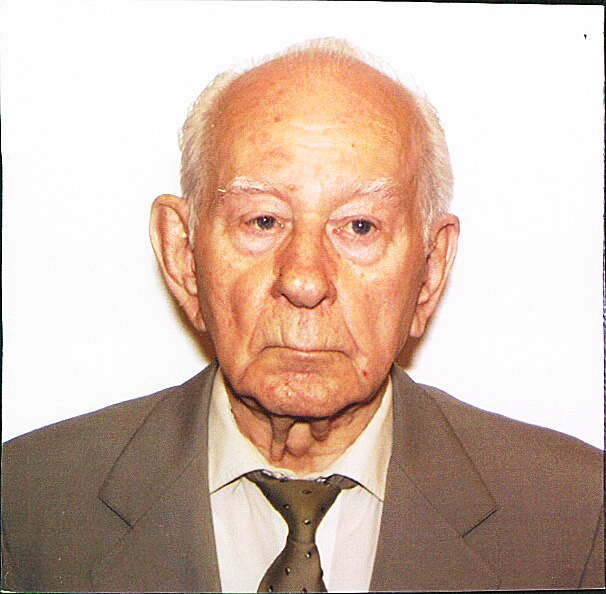In last week’s Roanoke Star-Sentinel, we presented the story of John W. Jay, Jr. Now a resident of Botetourt County with his wife, Jay originally was a native of Poland, whose life was dramatically changed by the German invasion of his homeland at the start of World War II. He was eventually confined in a concentration camp where he spent the remainder of the war. In this edition, we bring Jay’s life forward from the war’s end to the present day.
In 1945, just before the war’s conclusion, Jay and his fellow concentration camp internees were taken from the camp. Jay almost didn’t live to enjoy his new freedom. He was wounded when the railroad car he and the others were in was strafed by an Allied plane that mistook them for Germans.
“They had no idea who we are–French or whatever. . .So they started shooting, and we were in a car. I got out when the car was shot to pieces. Many of the kids were dead,” recalls Jay, “I was wounded. I got out, and a German soldier helped me. Finally, we got into [an area] where – not the Nazis – but regular Germans helped us. And then, from there, we were sent by boat to Flensburg.”
When Flensburg was taken by the British Army and the Polish Army arrived from England, Jay was placed in the Polish Army.
“Nobody wanted to go to Poland for one thing,” Jay explained. “So the Polish Army that came out of England organized all of us,” and they were made part of the Polish Army in Germany. “But,” he continued, “like anything else, you want to go home. So, finally, I went home.”
Returning to Poland, Jay found his mother but not his father. He also made another discovery while there: the Polish people and government were now Communist.
“So I said, ‘I made a mistake. I shouldn’t have come.’ So finally I figured out I have to get back. We still had the Polish Army in the British Zone, and in the French area, there were still a lot of Polish people there,” he said.
Jay intended to return to West Germany, where the Holy Cross Brigade was serving occupation duty with the U.S. Army in Firstenfeldbruk. He made it to the German-Polish border, only to be arrested by the Polish border guards and confined in a Polish Communist prison. The plan was to send Jay to Russia for “re-education” purposes. At the time, Jay had some goods in his possession that he gave to his Polish captors. They, in turn, put him to work on the outside in a park situated between the Polish and German sides of the river.
Shortly after, he was joined by a German soldier who had escaped from the Polish prisoner-of-war camp, only to be recaptured. As Jay was the sole individual among the Poles in the prison who could speak German, he reached out to the German POW.
“I spoke to him, and we were a type of friends. So then we were cleaning the park and, on the other side, was East Germany and, of course, the Russians and the Communists. So I figured, if I can get out of here, I can probably make it.” To do so Jay would have to swim across a river. “There was a flour mill on the other side, and the miller was always looking at what’s going on.”
Making his move, Jay climbed up a tree off the river and jumped into the river, swam across and reached the German side, where the miller who operated the flour mill sheltered him from the Communist authorities. He spent the night there while the miller’s wife cleaned his clothes. Leaving the next morning, Jay traveled the side roads, intending to visit the parents of the German POW he befriended. Along the way, Jay was arrested in East Germany, then was ultimately transferred to the Russians. He was in a Russian prison for six weeks. He persuaded his captors that he was a German prisoner-of-war and that his family was in Konigsberg, in East Prussia. He decided to go to West Germany.
To do that, said Jay, “I got together with smugglers. They were smuggling things out of East Germany into West Germany, and I made it there. And then, of course, from that point on, the Polish Armored Division was still in Munich. So I went to Munich and, from there, I went to France.” The division was going to France and its members were preparing to return to civilian life.
Reaching France, Jay worked for an insurance company in Alsace. It was while he was in France that he met his future wife, the former Jeanne Tomczak.
“I was going away to school in Strasbourg,” Mrs. Jay says of that meeting. “He kept on writing letters to me.” Married in June 1950, they’ve been together ever since.
After Jay took off his soldier’s uniform for the last time, he and Jeanne eventually came to the United States, where he entered the banking business, and his wife, the insurance field. Both became American citizens in 1963. After raising their sons, the Jays came to Virginia, where in Blue Ridge they now live a quiet, contented life in retirement. After all he experienced during and after World War II, John W. Jay, Sr. certainly deserves it.
By Melvin E. Matthews, Jr. [email protected]



This is an amazing story. WWII was especially brutal on Poland. A book I’m reading called Abandoned and Forgotten (author a href=”http://www.abandonedandforgotten.com/”>Evelyne Tannehill) describes what happened there through the eyes of a 9 year old girl who lost most of her family. Does anyone really WIN a war?